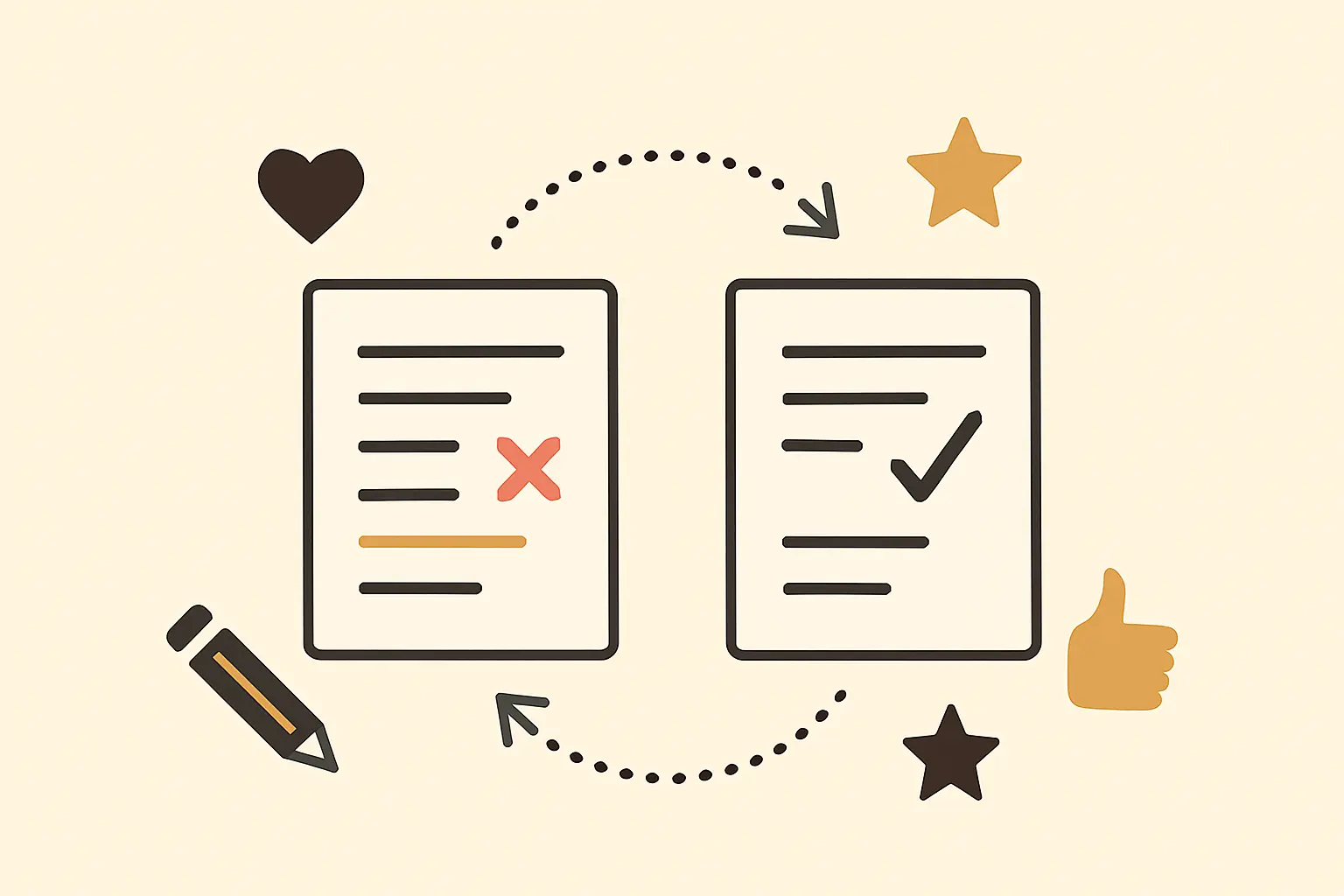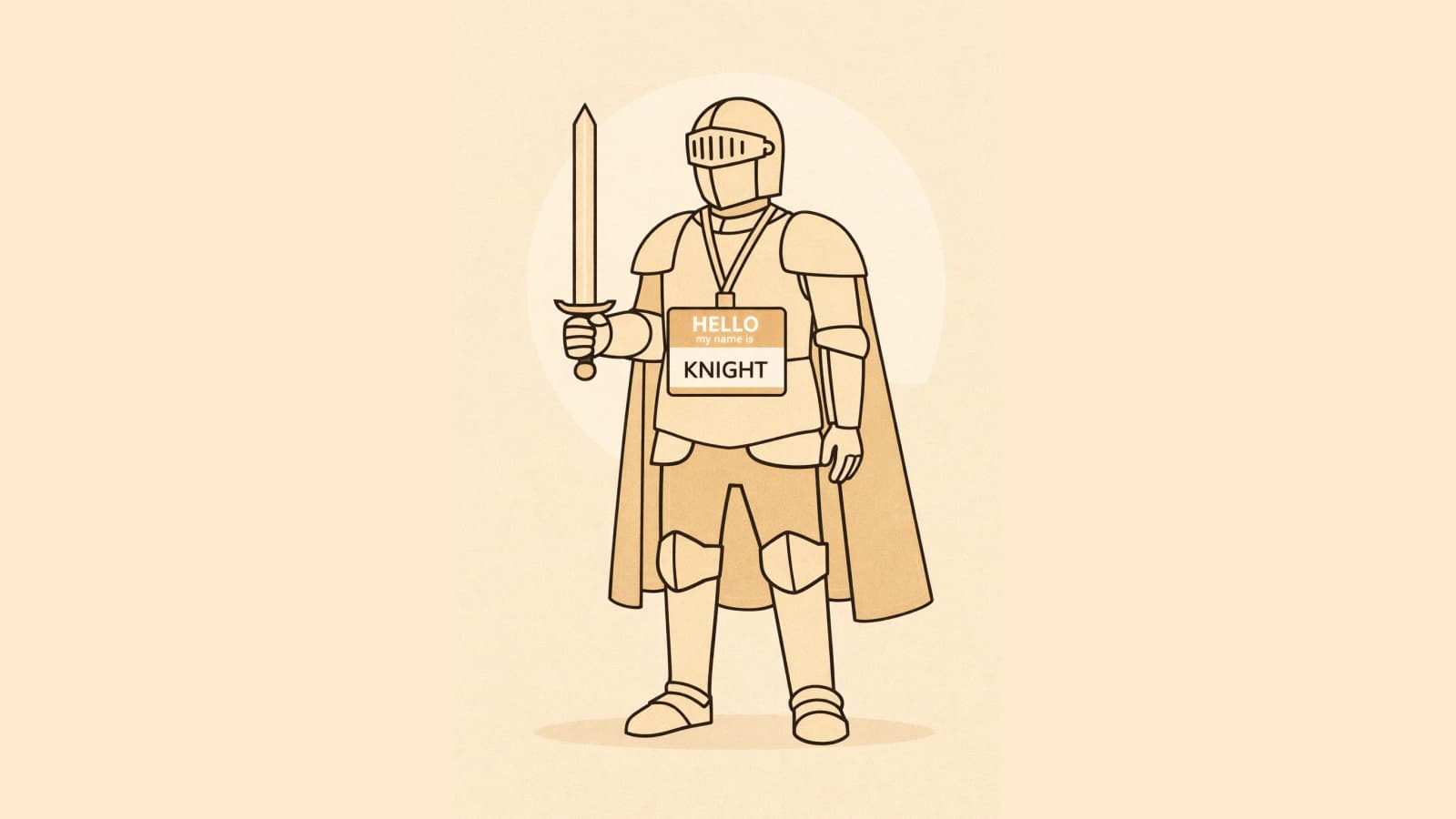How to Find the Right Critique Partner for Your Novel

Every writer reaches that crucial moment when they know their manuscript needs fresh eyes. But while your friends and family might offer encouraging words, what you really need is someone who understands the craft of storytelling and can help you see what you're too close to notice.
Enter the critique partner: a fellow writer who becomes your trusted collaborator in the revision process. Finding the right one can transform your writing journey, but knowing where to look and what to expect makes all the difference. By the end of this post, you'll understand why critique partners are important, where to find them, and how to get (and give) the most from it.
Understanding What a Critique Partner Really Does
A critique partner (CP) is different from a casual reader or beta reader. They're another writer who trades detailed feedback with you, usually on an ongoing basis. The relationship is built on reciprocity—you invest time in their work, and they invest equally in yours.
The best critique partners excel at developmental feedback, helping you tackle the big-picture elements that make or break a story:
- Story structure and pacing: Are there scenes that drag or rush? Does your three-act structure hold together?
- Character development: Do your protagonists have clear motivations? Are their arcs satisfying and believable?
- Plot coherence: Where are the logical gaps or missed opportunities for tension?
- Emotional resonance: Are readers feeling what you want them to feel at key moments?
- Worldbuilding and consistency: Does your fictional world feel lived-in and logical?
Unlike a friend who might say "I liked it" or "something felt off in chapter three," a skilled CP will point to specific passages and explain why they're not working—and often suggest concrete ways to improve them.
How Critique Partners Fit Into Your Revision Process
It helps to understand where CPs fit alongside other types of feedback providers:
| Type | Focus | Paid? | Relationship |
|---|---|---|---|
| Critique Partner | Developmental feedback; structural and line-level notes | No | Reciprocal |
| Beta Reader | Reader impressions; "did it work?" feedback | Rarely | One-directional |
| Editor | Professional, structured editing (dev, line, copy) | Yes | Service provider |
Think of it this way: beta readers tell you if your story works, critique partners help you understand why it works (or doesn't), and editors provide professional polish. You might use all three at different stages of your revision process.
Where to Find Your Ideal Critique Partner
The writing community is vast and welcoming, with many writers actively seeking serious critique partnerships. Here are the most effective places to connect:
Reddit Writing Communities
- r/BetaReaders regularly hosts CP matching posts
- r/DestructiveReaders focuses on detailed critique exchange
- r/writing has weekly threads for finding partners
- Genre-specific subreddits often have their own CP calls
Discord Servers for Writers
- The Writing Room and Write Together offer real-time community interaction
- Scribophile's Discord connects users of the popular critique platform
- Many allow you to chat with potential partners before committing
Established Writing Platforms
- Scribophile provides structured critique exchange with built-in compatibility matching
- Absolute Write's forums have active CP matching threads
- Facebook groups like Critique Connect focus specifically on partnerships
Other Opportunities
- Twitter/X often features CP matching hashtags
- Camp NaNoWriMo forums during writing events
- Local writing groups and workshops
- Writing conferences and online events
Pro tip: Keep a simple spreadsheet or notes document tracking potential CPs, including their genre focus, communication style, and project timelines. This prevents confusion as you explore multiple connections.

Testing Compatibility Before You Commit
Not every good writer will be the right critique partner for you, and that's perfectly normal. Before exchanging full manuscripts, take time to assess whether you're a good match:
Start with a sample exchange. Trade the first chapter or 15-20 pages of your current projects. Pay attention to the quality and style of feedback you each provide. Are they catching story-level issues? Do their suggestions resonate with your vision for the story?
Discuss your working styles. Some writers prefer blunt honesty; others need encouragement mixed with criticism. Some want line-by-line comments; others focus purely on big-picture notes. Talk about what kind of feedback serves you best and what you're comfortable providing.
Establish communication preferences. Will you exchange chapters weekly, trade complete drafts monthly, or work project by project? How quickly do you each prefer to turn around feedback? Mismatched expectations here can sink an otherwise good partnership.
Trust your instincts. After reading their feedback, do you feel energized to revise, or deflated? Do they seem to understand what you're trying to achieve with your story? A good CP should challenge you while respecting your creative vision.
If the initial exchange feels productive and encouraging, proceed with confidence. If something feels off, it's better to politely decline and keep looking than to force a mismatched partnership. After, you'll be investing many hours in their work, so make sure what you're getting in exchange feels fair.
Building a Partnership That Lasts
The most successful critique partnerships share certain characteristics. Here's how to nurture a relationship that benefits both writers:
Communicate clearly from the start. Be specific about what you need. If you want developmental feedback only, say so. If you're comfortable with harsh honesty, make that clear. If you prefer suggestions framed as questions rather than directives, communicate that preference.
Match the effort you receive. If your CP provides three pages of thoughtful notes, aim to give similarly detailed feedback. This doesn't mean matching word-for-word, but the investment of time and attention should feel roughly equivalent.
Focus on the story, not the writer. Frame feedback around the manuscript's needs rather than the writer's choices. "This scene moves slowly" is more helpful than "You write slow scenes."
Implement thoughtfully, not automatically. Your CP's job is to identify problems and suggest solutions, but you remain the author. Consider each piece of feedback carefully, but don't feel obligated to accept every suggestion.
We've also written a comprehensive feedback guide that provides some tips on how to think about feedback for those interested in more of the minutiae.
Supplementing Feedback
Sometimes even the best critique partners aren't available when you need them—or you're not ready to share early drafts with others. In these situations, AI-powered tools like Inkshift can provide valuable supplemental feedback.
Inkshift offers instant manuscript critiques designed to replicate a critique partner: structure notes, pacing issues, character arcs, prose clarity, and even marketability.
You can:
- Upload your manuscript and receive a full critique in minutes
- Get up to 10,000 words critiqued free
- Pay just $25 for a full-novel developmental edit
- Keep full control of your manuscript (it's deleted after analysis)
It's not a replacement for trusted CPs, but it's a fast, private, and affordable supplement—especially if you're early in revisions or between feedback rounds.
Moving Forward With Confidence
Finding the right critique partner is one of the most valuable investments you can make in your writing development. A good CP becomes more than just a feedback provider: they become a collaborator, cheerleader, and trusted advisor who helps you see your stories more clearly.
The search requires patience. You might connect with several writers before finding the right match, and that's completely normal. Focus on building relationships based on clear communication and shared commitment to the craft.
When you do find someone who challenges your work while supporting your growth you'll wonder how you ever revised without them. Good luck!

